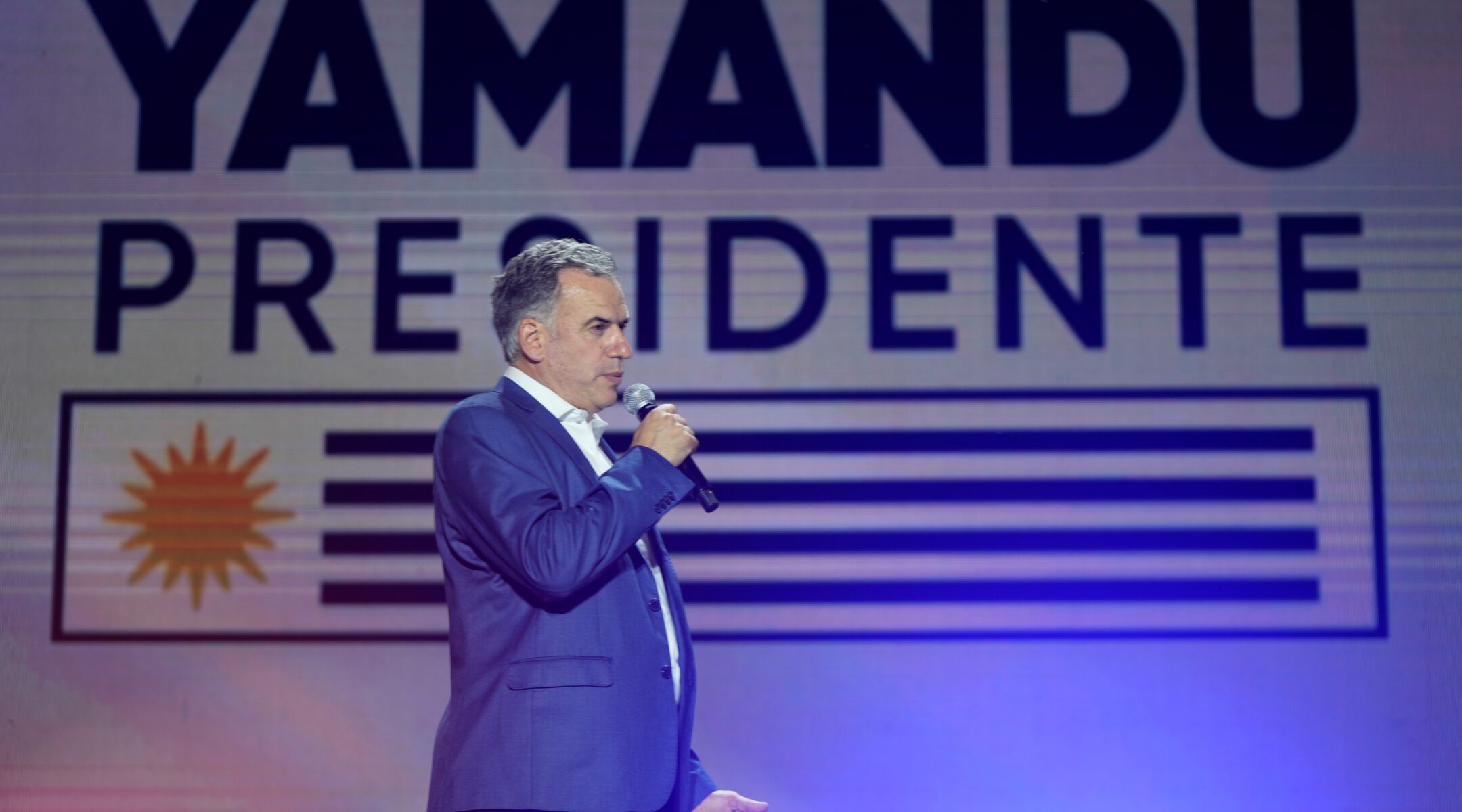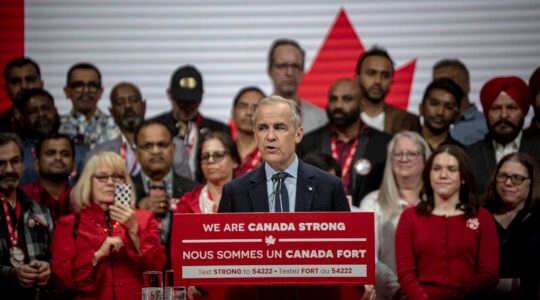Like many of his fellow Latin American leaders, Uruguay’s new president-elect is left-wing. But Yamandu Orsi, who narrowly won a runoff election on Sunday, stands out in at least one way: He has never attacked Israel.
Gustavo Petro in Colombia, Gabriel Boric in Chile, and Luiz Inácio Lula da Silva in Brazil are all vehement critics of Israel; some have broken diplomatic ties with Israel over its war in Gaza. Jose “Pepe” Mujica, Uruguay’s former president and Orsi’s mentor, is also a harsh Israel critic.
Orsi, by contrast, expressed admiration for Israel’s multicultural society after visiting last year and reiterated those sentiments this month, shortly before the election, even suggesting that he could self-identify as a Zionist. He says he supports Israel’s right to exist while also backing calls for a Palestinian state.
“On the boulevard you see people of both faiths,” Orsi told an interviewer from the Jewish community in September 2023 in Tel Aviv. “That is what surprises me the most, honestly. There is a part of the reality here that is more about coexistence than the other. So it is possible.”
Orsi was on a trip organized by the Central Israelite Committee of Uruguay and the Latin American Jewish Congress, traveling with officials from those Jewish groups on an itinerary focused on science and innovation. Orsi, then mayor of Uruguay’s Canalones region, also visited major tourist attractions including Yad Vashem, Israel’s Holocaust memorial.
“I am a history teacher and I have taught classes on the Second World War and the impact of the Holocaust,” Orsi said in a second interview upon his return. “The guide showed us and gave us details of aspects that I frankly did not know and that, naturally, shocked me.”
Orsi faced criticism from pro-Palestinian leftists within his coalition, the Broad Front, for visiting Israel in a trip that came just weeks before Hamas attacked on Oct. 7, 2023, launching the ongoing war in Gaza. He also drew some criticism from pro-Israel Uruguayans for a tweet he posted while there that highlighted the income gaps between Israelis and Palestinians in Gaza.
“My strategy is dialogue. I can understand that they want to impose vetoes or … a kind of ideological purity of my actions,” Orsi told the interviewer about the left-wing critics. “Clearly, it is not my path. Dialogue and peace, peace and dialogue — I will not give up on that, nor on the freedom to express one’s opinion.”
Orsi’s campaign focused on the environment and the economy, and Israel was not a prominent part of the election discourse. But he discussed Israel at length just before the runoff election on air with a prominent Uruguayan radio personality.
The interviewer, Orlando Petinatti, is Jewish and pro-Israel; his show, “Bad Thoughts,” has aired since 1991 and is the most popular Uruguayan radio program. Orsi signaled that he agreed with Petinatti’s assertion that there is “no apartheid” in Israel, recalling how he watched Arab players on the Israeli team that Uruguay defeated in a game during his trip.
Orsi also said he would call himself a Zionist if the definition is as Petinatti articulated it: “in favor of the Jewish people having a state in the land of Israel.” Orsi added that that would need to come along with provisions granting equal rights to religious minorities.
“I like Zionism ,and also like the Palestinian cause to have a state,” he said. “Having said that, I’m in favor of Israel’s right to exist but I’m not always agreeing with the actions of the Israeli government.”
Uruguay is home to about 15,000 Jews, according to the Latin American Jewish Congress, out of a total population of 3.4 million. (While most live in the capital of Montevideo, there is also a burgeoning Jewish community in the coastal city of Punta del Este.) It was the first South American country to officially recognize the state of Israel and was home to the first Israeli embassy in Latin America, established in 1948, the year of Israel’s founding.
Orsi’s term begins in March and lasts five years. He replaces a center-right politician who represented the only break in the Broad Front’s leadership dating back to 2005.
Uruguay is considered Latin America’s most stable democracy; voting is mandatory and 90% of eligible voters cast ballots in each round of this year’s election. Its neighbor to the west, Argentina, is the largest country in the region with a right-wing president; Javier Milei is vociferously pro-Israel and is reshaping his country’s foreign policy after a period of left-wing leadership, with the goal of bringing Argentina closer to the United States and Israel.
Paraguay, to Argentina’s north, also has a right-wing and pro-Israel president. Santiago Pena, elected last year, is in the process of moving his country’s embassy back to Jerusalem after his predecessor, a liberal, moved it to Tel Aviv, prompting a diplomatic crisis. Pena plans to visit Israel next week to rededicate the Jerusalem embassy.
JTA has documented Jewish history in real-time for over a century. Keep our journalism strong by joining us in supporting independent, award-winning reporting.






